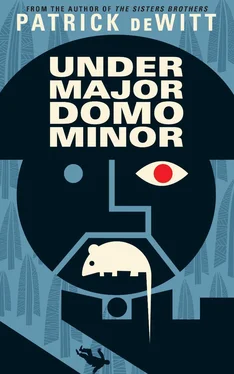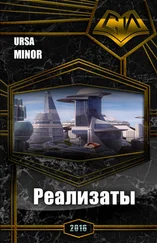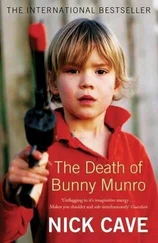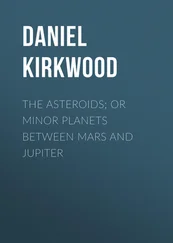“May I ask you where you’re headed?”
“The Castle Von Aux. Do you know it?”
“I do indeed.” Scratching his belly, he asked, “You wouldn’t perhaps be Mr Olderglough’s new man, would you?”
“I am. How did you guess it?”
“Poke in the dark.”
“Do you live at the castle?”
“I most certainly do not.”
Lucy thought he detected in these words some trace of pique, and so he asked, “Why do you say it like that?”
The man held up a finger. “For one, I am not welcome there.” He held up another finger. “For two, I have no inclination to visit such a place.” He held up a third finger, opened his mouth to speak, shut his mouth, and balled his hand to a fist. He sighed. “Do you know,” he said, “I was saddened about Mr Broom.”
“Who’s Mr Broom?”
“Your predecessor.”
It hadn’t occurred to Lucy that there’d been a predecessor. The man deduced this and asked, “Have you heard nothing about him?”
“No.”
“I find that strange. There’s a story there, after all. Poor Mr Broom.”
Lucy sat watching the man, who apparently did not plan to elaborate.
“Won’t you tell me?” Lucy asked.
“It’s not for me to tell. Ask Olderglough. Though he’ll likely not tell you either, that rascal. Ah, well. We’ve all got our lessons to learn, haven’t we?”
“I suppose that we do,” said Lucy, finding the sentiment, and indeed the man himself, vaguely threatening. Hoping to mask this feeling, Lucy casually removed his pipe from his pocket, to study and admire it. The man took an interest as well, and asked if he might have a look for himself. Lucy handed the pipe across, and the man held it this way and that. He nodded his appreciation. “This is a very fine pipe.”
“Thank you,” said Lucy.
“Very fine indeed.”
“Thank you, yes. May I have it back, please?”
The man returned the pipe, but there was an unhappiness in his eyes, as though to part with it pained him. When Lucy tucked the pipe away in his breast pocket, the man stared at Lucy’s chest. The mountains had eclipsed the sun and the compartment dropped to a cold colouring; the conductor passed in the corridor, stating it would soon be time to disembark. The man stood as the train eased into the station.
“What’s your name, boy?” he asked.
“Lucy.”
“Lucy? I like that. I’m Memel.” He pointed out the window. “And there’s your new home.”
The Castle Von Aux stood a half mile beyond the station; Lucy could make out a broad, crenellated outer curtain wall and two conical towers. It was built at the sloping base of a mountain range, standing grey-black against the snow — a striking setting, but there was something chilling about it also. Lucy thought it was somehow too sheer, too beautiful.
Memel was buttoning up his coat. Once accomplished, he did a curious thing, which was to tilt his head back and speak into the empty space before him: “Mewe,” he said. “We’ve arrived. Will you come out, yes or no? I’m sorry that we argued.” Bending at the waist, he peered under the bench and made a beckoning gesture. “Come on, already. What are you going to do? Stay here forever?”
A boy rolled like piping from beneath Lucy’s bench and stared up at him. Lucy took in the boy’s features, which were a source of fascination; for whereas Memel was an old man who seemed far younger than his years, here was a boy of perhaps ten with the mark of bitter time impressed upon his face: a hollowness at the cheek, a bloodless pallor, wrinkles bunching at the corners of his eyes. When he extended his hand, Lucy shook it, but the boy, Mewe, said, “I meant for you to help me up.” Lucy did help him up, and now the three of them made for the exit. The wind was swirling snow outside, and Memel and Mewe flipped up the collars of their coats before disembarking. Only now did it occur to Lucy just who these people were.
They stepped into the shin-high snow blanketing the platform. The station was a fallow cabin with its door half off the hinges and the windows knocked out. Animal tracks darted in and out of the homely structure but there were no human footsteps to be seen. Neither Memel nor Mewe had any baggage; they pushed on in the direction of the castle, punch-punching through the frosted snow, while Lucy stood awhile by the train tracks, preferring to be apart from these two. But when they noticed his falling behind they ceased walking and called for him to hurry along, that they might travel together. Lucy could think of no alternative other than to fall in line, and so he did this, saying to himself, I am alone with two bloodthirsty thieves. We are walking into an anonymous field of pale snow. Hoping to keep their criminal minds occupied with chatter, Lucy spoke, asking Memel if Mewe was his son, or grandson. Memel said no, they were merely friends.
“Not today we’re not,” said Mewe.
“No, that’s true. Today we’re not friends. But normally, yes.”
“Why aren’t you friends today?” Lucy asked Mewe.
Mewe shook his head. “Memel likes to talk; he’ll tell you.”
“You’ll only interrupt me,” Memel said.
“No, I won’t.”
“It’s an unremarkable thing,” Memel admitted to Lucy.
“If idiocy is unremarkable,” added Mewe.
“Of course idiocy is unremarkable. That’s its chief attribute.”
“I’ve found your idiocy to be quite remarkable at times.”
Memel rolled his eyes. “Mewe takes refuge in insult,” he told Lucy.
“Quite remarkable indeed,” Mewe said. But Memel remained silent; he wouldn’t participate in the lowly discourse. Mewe kicked at the snow. Wearily, he said, “We just like to fight, is what it is.”
Memel pondered the statement, apparently a virgin notion for him. “It’s true. We do,” he said. He was displeased by the admission; it appeared to make him remorseful.
Lucy had been watching the pair for a time, but as their conversation fell into a lull, now he looked up at the castle, and when he did this he startled, for it was much closer than he’d sensed it to be, as if the property had uprooted itself and met them halfway. Lucy considered its facade with a dour expression, and he thought about how buildings often took on the qualities of a living being for him. His own home, for example, was the architectural embodiment of his mother; the tavern was a tilted, leering drunkard; the church was the modest yet noble double of the good Father Raymond. But what was the castle representative of? It was too early to name it. He only knew that it spoke of something colossal and ominous and quite beyond his experience.
They approached a shanty village, built up in a cluster apart from the base of the castle, a hundred or more haphazard domiciles linked side by each in the shape of a teardrop. A series of larger, open-air structures formed a cross through the centre — marketplace stalls, Memel explained. Lucy watched as the villagers went about their business: shawl-covered women ducking in and out of doorways, children wrapped to their breasts or trailing behind; men standing in groups of threes and fours, speaking animatedly, gesturing, laughing. Memel pointed out his shanty to Lucy, and with pride, though it was indistinguishable from the others: a warping shack fashioned from tin scrap and mismatched timber. A chimney pushed through the roof, tall and tilted, issuing wispy woodsmoke.
“And does Mewe live with you also?” said Lucy.
“No, I live alone,” said Mewe. “Just this side of Memel’s, do you see?”
Lucy nodded. He asked Memel, “How long have you lived here?”
“I was born here. Mewe, too. We all were.”
“And how long has the village stood beside the castle?”
“Just as long as the castle has been here, so has the village.”
Читать дальше












